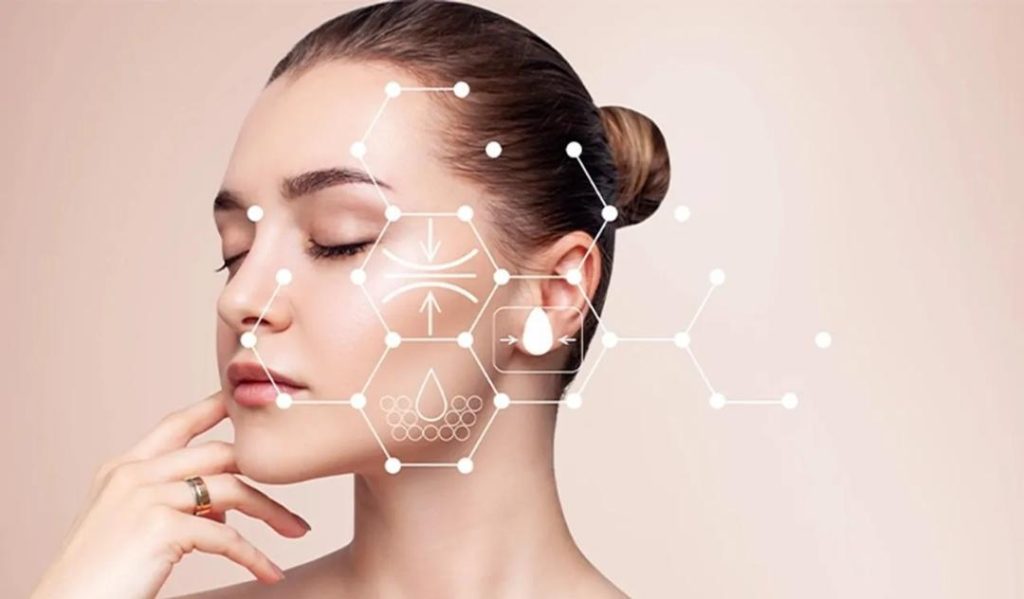
How AI & Innovation are Redefining the Beauty and Wellness Landscape
The skincare industry has undergone a significant transformation in recent years, moving from basic routines to a realm of personalized solutions, inclusivity, and cutting-edge innovation. As we look ahead to 2025, skincare trends reflect a deeper understanding of diverse skin needs, a commitment to wellness, and a harmony between science and nature.
One of the key drivers of this transformation is the increasing adoption of artificial intelligence (AI) in the beauty and wellness industry. AI-powered skincare tools, such as facial analysis software and personalized product recommendation algorithms, are revolutionizing the way consumers approach skincare. These technologies enable consumers to gain a deeper understanding of their skin, identify areas of concern, and receive tailored advice and product recommendations.
AI-powered skincare tools are not only changing the way consumers approach skincare, but also transforming the way skincare professionals work. AI-powered dermatoscope devices, for example, allow dermatologists and estheticians to analyze skin conditions more accurately and provide more effective treatments. AI-powered skincare platforms, such as virtual skincare assistants, are also becoming increasingly popular, offering consumers personalized skincare advice and product recommendations.
Another trend that is expected to shape the skincare industry in the coming years is the increasing focus on inclusivity. The traditional skincare industry has often been criticized for its lack of diversity, with many products and marketing campaigns failing to cater to the needs of consumers from diverse racial and ethnic backgrounds. However, there is a growing recognition of the importance of inclusivity, with many skincare brands and companies now prioritizing diversity and inclusion in their products and marketing.
One example of this trend is the rise of skin tone-matching products, which are specifically designed to cater to the needs of consumers with darker skin tones. These products are formulated to address the unique skin concerns of consumers with darker skin tones, such as hyperpigmentation and uneven skin tone. Other skincare brands are also prioritizing inclusivity, with many now offering a range of products that cater to different skin tones and types.
In addition to AI-powered skincare tools and a focus on inclusivity, another trend that is expected to shape the skincare industry in the coming years is the increasing emphasis on wellness. The traditional skincare industry has often been focused on treating symptoms, rather than addressing the underlying causes of skin concerns. However, there is a growing recognition of the importance of wellness, with many skincare brands and companies now prioritizing self-care and stress management.
One example of this trend is the rise of skincare products that are specifically designed to promote relaxation and reduce stress. These products, which often contain ingredients such as lavender and chamomile, are designed to help consumers relax and reduce stress, which can have a positive impact on their skin. Other skincare brands are also prioritizing wellness, with many now offering a range of products and services that promote self-care and stress management.
Another trend that is expected to shape the skincare industry in the coming years is the increasing use of natural ingredients. The traditional skincare industry has often relied on synthetic ingredients, which can be harsh and irritating to the skin. However, there is a growing recognition of the importance of using natural ingredients, which can be gentler and more effective.
One example of this trend is the rise of natural skincare products, which are made with ingredients such as coconut oil, aloe vera, and green tea. These products are designed to be gentler and more effective than traditional skincare products, and are often preferred by consumers who are looking for a more natural approach to skincare. Other skincare brands are also prioritizing natural ingredients, with many now offering a range of products that are made with natural ingredients.
Conclusion
The skincare industry is undergoing a significant transformation, driven by the increasing adoption of AI, a focus on inclusivity, an emphasis on wellness, and the use of natural ingredients. As we look ahead to 2025, it is clear that the skincare industry will continue to evolve, with new trends and technologies emerging that will shape the way we approach skincare.
For consumers, this means that there will be a wider range of products and services available, all designed to cater to their unique skin needs and concerns. For skincare professionals, this means that there will be new tools and technologies available that will enable them to provide more effective and personalized treatments.
Ultimately, the future of the skincare industry is bright, with a focus on innovation, inclusivity, wellness, and natural ingredients. As we look ahead to 2025, it is clear that the skincare industry will continue to evolve, and that there will be many exciting developments and trends on the horizon.
Source:
https://www.shethepeople.tv/author-spotlight/guest-contributions/skincare-trends-for-2025-8728129






